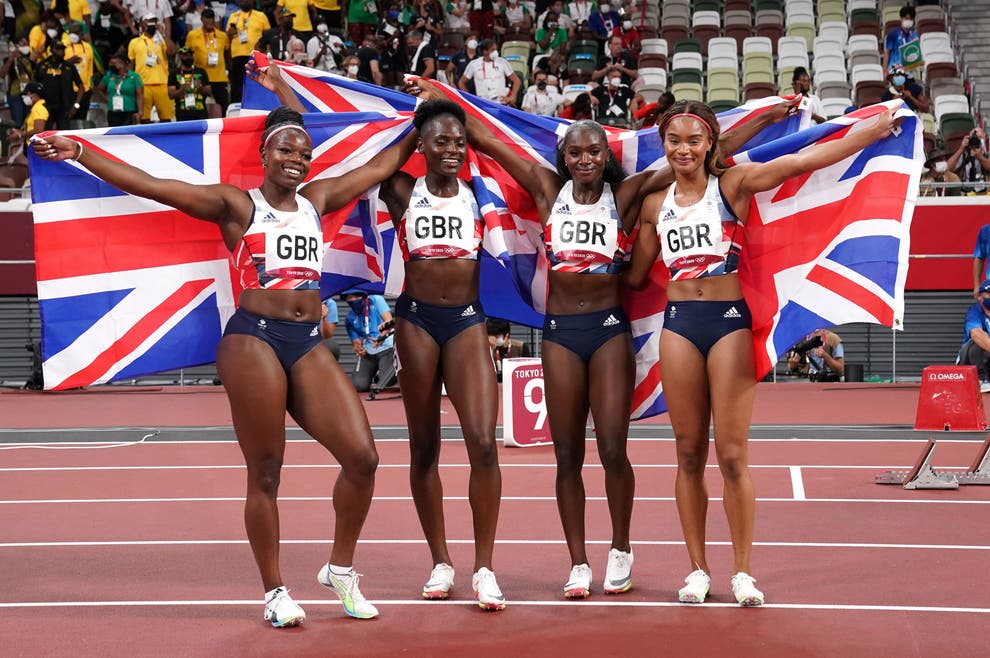Imani-Lara Lansiquot, Dina Asher-Smith, Laviai Nielsen and Antonio Infantino are just some of the names that were praised in front of millions of people worldwide, awarded several medals on the prestigious stage at the Tokyo 2020 Olympics. The stories of these athletes and their astonishing achievements all share the same beginning and the same foundational experience: King’s College London. The University’s background of enthusiastic and passionate athletes is proven once more at the last Olympics. However, in order to be able to quantify how important the university experience was on the performance of the athletes, it is necessary to delve deeper into the stories of all these remarkable people who make King’s College proud of its alumni.
Dina-Asher Smith, who is recognised as the fastest woman in Britain, and Imani-Lara Lansiquot, who has achieved bronze in the Tokyo 4x100m woman relay have also achieved many things aside from their strong sporting career. Dina-Asher Smith is one of the UK’s most influential people of African descent having broken the British records at the 2019 World Championship, which still stands to this day. In light of her many achievements, her academic performance is also notable, having graduated from King’s in 2017 with an upper-second class degree in history. On the other hand, Imani-Lara Lansiquot is a sprinter and her 100 m best ranks 4th in the UK’s all-time list. Recently, in 2020, she became a British Champion as she won first place at the 2020 British Athletics Championships for the 100 m event.
King’s College London is well-known for supporting students who want to pursue a sports performance career, in which many of the athletes who took part in their programme have attained great achievements in their sporting career. KCL has produced some successful Olympians, including Paul Bennet (1x Olympic Gold medalist, 2x World Championship Gold medalist) and Dame Katherine Grainger, who is Great Britain’s Most Decorated Female Olympian (1x Olympic gold medalist, 4x Olympic Silver medalist, 6x World Championship Gold medalist). Dame Katherine Grainger is a former rower for the British team and is currently a Chairwoman of UK sport, but aside from her outstanding athletic career, she also holds a Doctor of Philosophy in Law from King’s.
Although being an accomplished athlete can be demanding, time-consuming and exhausting, as well as contributing to university in the mix can make students overwhelmed, King’s has always supported its students in both their studies and their athletics ambitions. In an interview, Imani-Lara Lansiquot spoke about her experience at King’s as a psychology student who trained in athletics. Lansiquot’s ambitions do not only contribute to her athletics career, as she also aspires to finish her studies with a first-class degree. While balancing studies and training can be challenging, a strong mindset, good organisational skills and being highly motivated and optimistic is what helped Lansiquot in keeping up with her busy lifestyle and succeeding in her goals.
Many students want to have similar or even greater achievements compared to these athletes, however, this may be difficult to fulfil as they do not want to neglect either their future sporting career or academic performance. Therefore, for any aspiring athletes who want to do their best academically as well, the King’s Sport Performance Programme is the perfect programme for balancing their training and studies, as its main purpose is to support sporting excellence for their students. It offers not only academic flexibility and support in the development of future athletic careers (performance nutrition, physiotherapy, career development workshops), it also provides financial aid through the Performance scholarships offered, which can be a great asset considering all the expenses required in athletics.






0 Comments